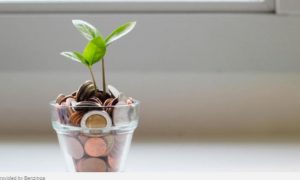Awoman who works in child developmental research has weighed in on the hot topic surrounding “iPad kids,” and the obscene amount of screen time that children of this generation are exposed to. In a TikTok video, Liv revealed that through her line of work, in which she works directly with children ranging from babies to toddlers, she has noticed a tell-tale reaction from kids who spend all day looking at screens.
Read More:- 4 Ways to Reach Millionaire Status
She explained how she can tell when a child is being raised with technology compared to children who aren’t.
Liv informed viewers that she obtained her bachelor of science in cognitive neuroscience during her undergrad and is currently working in a lab of cognitive neuroscience with typically developed infants. In her line of work, Liv deals with infants starting at three months and toddlers up to the age of three.
She explained that she cares deeply about child development and enjoys learning about it during her spare time. Regarding screen time, Liv responded to parents who criticized child-free individuals for having an opinion on the high amounts of screens that children are exposed to.
Read More:- Donald Trump Suffers Double Polling Blow
“Every single time an iPad kid comes in, us, the researchers, we know. It doesn’t take very long to tell, there is a big difference between babies who are exposed to screens 24/7 and babies who are not,” Liv observed. “You can tell within the first ten minutes of meeting a baby.”
She explained that at one point during her research, she would give the parents an iPad, and if the child can’t have access to that iPad, they start throwing a fit. To them, it’s “like the end of the world,” Liv noted. She’s recalled seeing babies who are eight to ten months old, who have zero interest in playing with toys made for them, but instantly want to play with an iPad when they see it.
“It’s really concerning,” she said. “Personally, I think your method of parenting is flawed if there’s a lot of research showing that it is flawed and people can tell [instantly] that your child has screen time or not.”
Liv clarified that parents giving their children technology every once in a while isn’t bad, but excessive screen time is.
Read More : Joe Biden just made a ‘smart move’ in dealing with Trump’s legal problem: expert
In a follow-up video, Liv admitted that not all screen time for children is inherently negative. Opening up about a small portion of the child development research that she participates in, Liv insisted that while it doesn’t directly have anything to do with screen time, she makes observations about the participants in the study.
“All screen time is not bad,” she remarked. “There’s a lot of great educational materials but also that should be kept minimized in a controlled manner. Tablets are amazing for children who are neurodiverse or have certain developmental disorders.”
To her, an “iPad parent” is someone who thinks iPads and other technological devices are responsible for raising their children. They depend on screens to entertain their child instead of playing with them or giving them other activities to occupy their time — ones that don’t involve sitting in front of a tablet, laptop, or TV.
Read More:- 4 Ways to Reach Millionaire Status
Sharing multiple articles from different studies and research, Liv found that high amounts of screen time in babies can often lead to issues in cognitive processing and academic achievement, and can be critical to health as well. It was also mentioned that screen time can be a proxy for the quality of parent-child interactions.
Instead of shoving a tablet or iPad in front of a child to entertain them, parents should instead utilize coloring books, interactive children’s toys, board games, puzzles, or even going outside to the playground. Tablets are good in moderation, but should never be depended on to teach children valuable skills that they can otherwise learn in better, more positive environments.



























